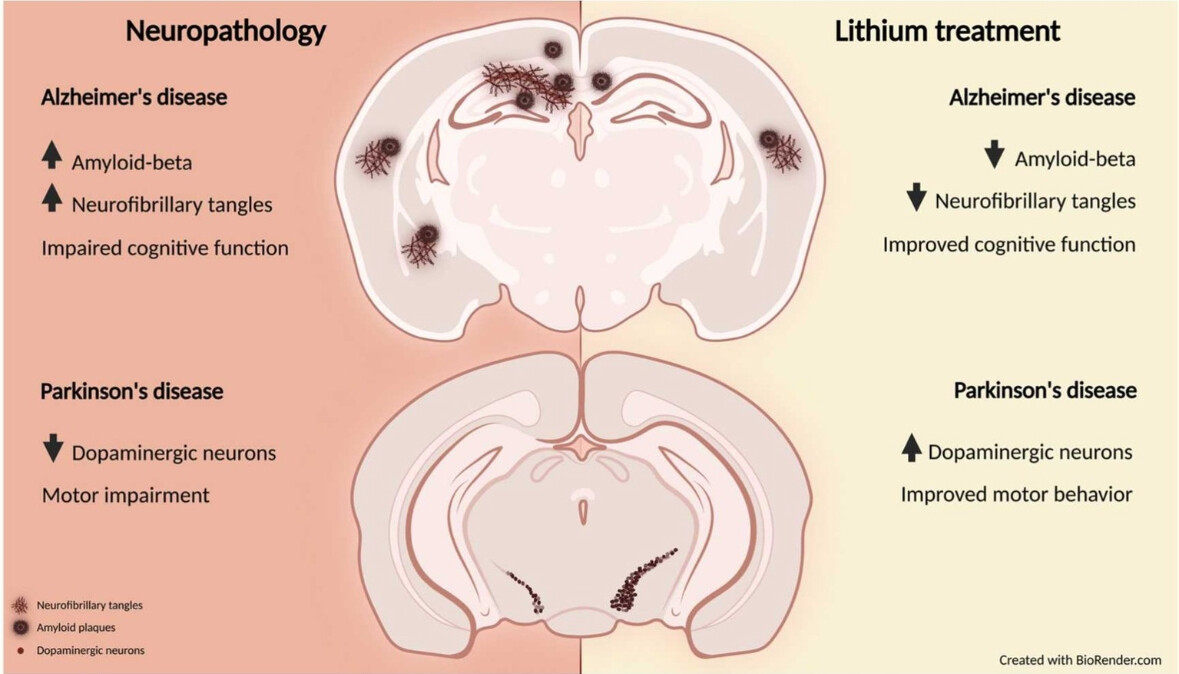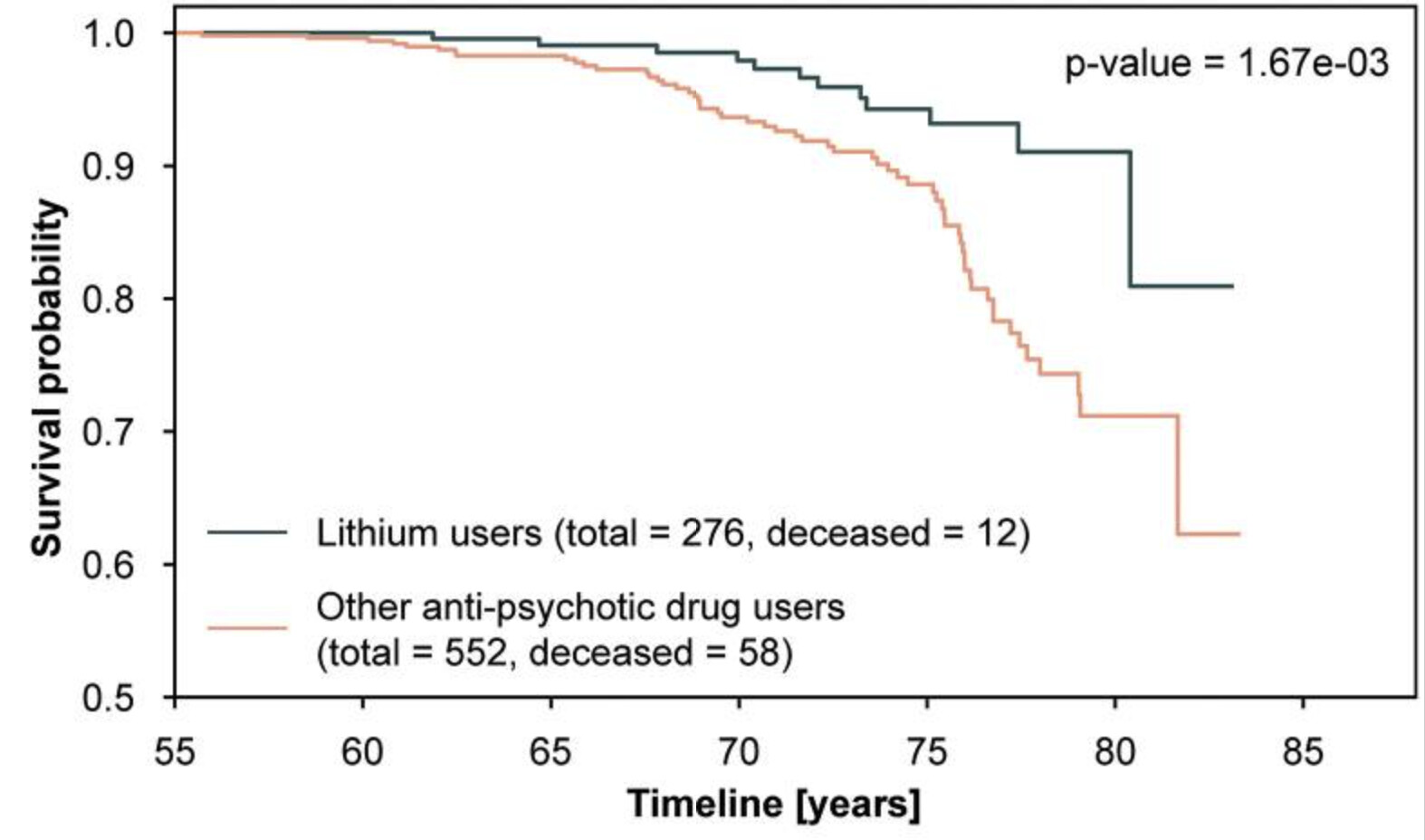Thanks a lot. I’m taking 2 mg/day (increased from 1 mg/day after I started dapagliflozin). I see a positive impact on mood.
@Neo: do you have access to the full paper? Do they mention the optimal dose?
Thomas Guttuso has just started a new trial of lithium in PD: Repurposing Lithium for Parkinson’s Disease
The trial’s description suggests there might be a highly individualized U-shape dose response:
In observational studies, small daily doses of lithium have been associated with a 77% reduced risk of developing Parkinson’s disease (PD). In addition, lithium therapy has been effective in preventing neuronal death and behavioral symptoms in several PD animal models. Recently, our group has shown 24-weeks of low-dose lithium aspartate therapy 45mg/day in PD to engage blood-based and the MRI disease progression biomarker, free water, to a greater extent than 15mg/day or 150mg/day of lithium carbonate. However, these blood-based and MRI biomarker findings stem from only four and two PD patients, respectively, who received lithium aspartate 45mg/day. In addition, two other PD patients receiving this dosage withdrew from the study due to side effects of sedation and dizziness. Subsequently, one of these patients who withdrew resumed lithium aspartate at 30mg/day and reported no side effects. Although these findings suggest that this dosage of lithium aspartate has positive effects on PD biomarkers, data from a larger number of PD patients will be required to justify conducting a larger, randomized controlled trial (RCT). The proposed study will enroll 15 additional PD patients over five months who will receive lithium aspartate 30-45mg/day for 24 weeks ensuring that the study will be completed within 12 months. The dosage will be slowly titrated in each patient up to the maximum tolerated dosage in this range. Blood-based biomarkers and MRIs will be assessed at baseline and 24 weeks. It is anticipated that a similar magnitude of biomarker engagement will be observed among these additional 15 patients as was seen in the handful from the pilot study. Such findings would provide strong preliminary evidence to support conducting a larger RCT including both clinical and biomarker outcomes. Positive results from such a RCT would support lithium aspartate as a disease-modifying therapy for PD.
Interesting study from last year: Lithium treatment extends human lifespan: findings from the UK Biobank 2023
“Subsequent multivariate survival analyses reveal lithium to be the strongest factor in regards to increased survival effects (hazard ratio = 0.274 [0.119–0.634 CI 95%, p = 0.0023]), corresponding to 3.641 times lower (95% CI 1.577–8.407) chances of dying at a given age for lithium users compared to users of other anti-psychotic drugs. While these results may further support the use of lithium as a geroprotective supplement, it should be noted that doses applied within the UK Biobank/NHS setting require close supervision by qualified medical professionals.”
They specifically looked at “lithium, in the therapeutic formulation of lithium carbonate (including brand name equivalent compounds Priadel™, Camcolit™, and Liskorum™)”. In the UK, the recommended doses for those are vary from 300–900 mg daily (Prophylaxis) to 0.4–1.5 g daily (treatment) depending on the brand.
If the above is true, then lithium would be the only effective antidepressant that is also neuroprotective and that increases lifespan in humans  . Has lithium ever been considered for the ITP?
. Has lithium ever been considered for the ITP?
There’s also this ongoing trial about to finish: Lithium As a Treatment to Prevent Impairment of Cognition in Elders (LATTICE)
The chosen dosage is interesting:
Lithium carbonate will be initiated at 150 mg per day and increased based on blood levels until a steady blood level between 0.6 and 0.8 meq/L is achieved. Participants will continue at the dose achieved for 2 years with quarterly monitoring.
Can’t wait to have the results!
Also: for those in the UK, which lithium supplements do you use? The usual good quality brands don’t offer it so I suspect it might be regulated. I, therefore, only buy it in France (where lithium supplements are only sold in pharmacies and in liquid form).

